Frequently Asked Questions
Basic Banking Questions.
To open a bank account, you typically need to visit a bank branch in person or follow the bank's online account opening process. You will be required to fill out an application form and provide necessary documents.
The required documents may vary depending on the bank. However, the most commonly requested documents to open a bank account include a valid identification document (such as a passport or driver's license), proof of address (utility bill), and sometimes proof of income or employment.
Yes. Many banks offer the option to open a bank account online plus, online-only banks are growing in number. The process usually involves filling out an online application, providing scanned copies or digital images of required documents, and completing any additional verification steps as requested by the bank.
Yes, 18 years of age is the typical requirement to open a bank account. However, minors can open accounts with a parent or guardian being a signatory on the account.
Some banks may require a minimum initial deposit to open an account, while other banks have a no-deposit requirement to open an account. The minimum deposit, if applicable, varies among banks and account types.
Generally, having bad credit doesn't prevent you from opening a bank account. Banks typically don't perform credit checks for basic bank account applications. However, if you have a history of fraudulent activity or owe money to the bank, it might affect your ability to open an account when a bank uses ChexSystems to verify new account applications. Second chance banking offers checking accounts for people with bad credit.
Having a bank account offers various benefits, such as a safe place to store your money, the ability to make transactions (e.g., deposits, withdrawals, transfers), access to online banking services, and the opportunity to build a financial history. Different types of bank accounts offer varying benefits.
Many banks charge a monthly maintenance, or service, fee to their customers just for having an account. They can range anywhere from $4 to $25.
Most often, joint accounts are held by one individual and a spouse or partner, family member or business partner, but it's possible for any two people to open a joint bank account together.
You can have as many bank accounts as you like. Having multiple accounts — at the same bank or different banks — can be useful for managing different savings goals.
Checking accounts allow quick access to your funds on an ongoing basis, and some checking accounts earn interest. Savings accounts have withdrawal limits, earn interest, and are typically used for a specific financial goal or emergency fund.
Yes, a foreigner can open a bank account in the U.S., it just takes some additional paperwork to make it happen. If you have a foreign government ID, passport or resident alien number from a green card, those will help. If you don't have a Social Security number, you'll need an ITIN.
The standard deposit insurance amount is $250,000 per depositor, per insured bank, for each account ownership category. The FDIC insures deposits that a person holds in one insured bank separately from any deposits that the person owns in another separately chartered insured bank.

